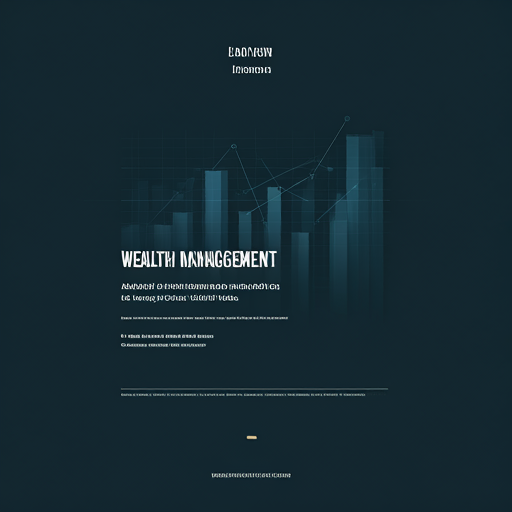Introduction to Wealth Management in the Cryptocurrency Era
The Evolution of Wealth Management
Wealth management has significantly evolved with the rise of cryptocurrency. This shift has introduced new asset classes that require specialized knowledge. Financial advisors must now understand blockchain technology and digital currencies. Many clients are seeking diversification beyond traditional investments . This trend reflects a growing acceptance of cryptocurrencies in mainstream finance. It’s fascinating to see how apace this landscape is changing. As a result, wealth managers must adapt their strategies accordingly. Staying informed is crucial in this dynamic environment.
Impact of Cryptocurrency on Traditional Wealth Management
Cryptocurrency has disrupted traditional wealth management practices. It introduces unique challenges and opportunities for financial advisors. He must consider factors such as volatility, liquidity, and regulatory compliance. These elements can significantly affect investment strategies.
Key impacts include:
Understanding these factors is essential for effective portfolio management. Many clients are eager to explore these new avenues. This shift requires a proactive approach from wealth managers. Staying ahead is vital in this evolving landscape.
Understanding Client Needs in a Digital Age
Shifts in Client Demographics
Client demographics are rapidly changing in today’s digital landscape. Younger investors are increasingly seeking personalized financial solutions. They prioritize technology-driven services and transparency. This shift necessitates a reevaluation of traditional wealth management approaches.
Advisors must adapt to these evolving preferences. Many clients value real-time data and analytics. Understanding their needs is crucial for effective engagement. This trend reflects a broader movement towards digitalization. It’s essential to stay informed about these changes.
Changing Investment Preferences and Risk Tolerance
Investment preferences are shifting significantly among clients today. Many are gravitating towards alternative assets, including cryptocurrencies. This trend reflects a desire for higher returns. He must assess his risk tolerance carefully.
Key factors influencing these changes include:
Clients are more willing to embrace risk. This evolution requires tailored investment strategies. Understanding these dynamics is essential for effective portfolio management. Staying adaptable is crucial in this environment.
Integrating Cryptocurrency into Wealth Management Strategies
Asset Allocation and Diversification
Integrating cryptocurrency into asset allocation strategies is essential for modern wealth management. This approach allows for enhanced diversification across various asset classes. By including digital assets, he can potentially increase overall portfolio returns.
Key considerations include:
These factors influence the optimal allocation of resources. Clients often seek a balanced approach. This strategy can mitigate risks effectively. Adapting to market changes is crucial.
Tax Implications and Regulatory Considerations
Tax implications and regulatory considerations are critical when integrating cryptocurrency into wealth management strategies. He must understand the tax treatment of digital assets, as they are often classified as property. This classification can lead to capital gains taxes upon sale.
Additionally, compliance with evolving regulations is essential. Advisors should stay informed about local and international laws.
Key points to consider include:
Navigating these complexities is vital for effective management. Awareness is key in this dynamic environment.
Technological Innovations Shaping Wealth Management
Blockchain Technology and Its Applications
Blockchain technology is revolutionizing wealth management through enhanced transparency and security. He can leverage decentralized ledgers to streamline transactions and reduce fraud. This innovation allows for real-time tracking of assets. Many clients appreciate the increased accountability.
Key applications include:
These features can significantly improve operational efficiency. Understanding blockchain’s potential is essential for advisors. Staying updated is crucial in this fast-paced environment.
Robo-Advisors and AI in Cryptocurrency Investment
Robo-advisors and AI are transforming cryptocurrency investment strategies. These technologies enable automated portfolio management based on algorithms. He can benefit from data-driven insights and real-time analysis. This approach enhances decision-making efficiency.
Key advantages include:
Clients often appreciate the convenience and transparency. Understanding these tpols is essential for effective investment. Staying informed is vital in this evolving landscape.
Building Trust and Transparency with Clients
Educating Clients on Cryptocurrency Risks and Benefits
Educating clients about cryptocurrency risks and benefits is essential for building trust. He must provide clear, factual information to help clients make informed decisions. This includes discussing market volatility and potential returns. Many clients may not fully understand these concepts.
Key topics to cover include:
Transparency fosters confidence inwards the advisor-client relationship. Clients appreciate honest discussions about potential pitfalls. Understanding these elements is crucial for effective wealth management.
Establishing Clear Communication Channels
Establishing clear communication channels is vital for fostering trust. He should utilize multiple platforms to engage clients effectively. Regular updates on market trends and portfolio performance are essential. Clients appreciate timely and relevant information.
Key methods include:
These strategies enhance transparency in the advisor-client relationship. Clients feel more secure with open lines of communication. Understanding their concerns is crucial for effective management.
The Future of Wealth Management on a Cryptocurrency World
Emerging Trends and Predictions
Emerging trends indicate a significant shift in wealth management practices. He must adapt to the increasing integration of cryptocurrency into investment portfolios. This evolution is driven by client demand for innovative solutions. Many investors are seeking diversification through digital assets.
Key predictions include:
These factors will shape future investment strategies. Staying informed is essential for effective management. Understanding these trends is crucial for success.
Preparing for the Next Generation of Investors
Preparing for the next generation of investors requires a proactive approach. He must understand their unique preferences and values. This demographic is increasingly tech-savvy and values sustainability. Many young investors prioritize ethical investment opportunities.
Key considerations include:
These factors will influence investment decisions. Advisors should adapt their strategies accordingly. Engaging with this generation is essential for future success.
